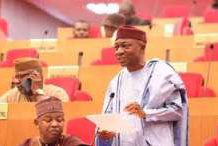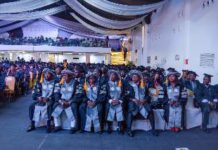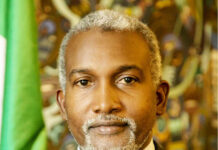By Joy Odor
Nigerian women have demanded the National Assembly to domesticate the Buenos Aires Declaration to ensure the Legislative Agenda and African Continental Free Trade Agreement (AfCFTA) provide economic growth opportunities for all gender to benefit from the projected N75 billion naira annual retail market and other business prospects it offers.
The demand among other significant issues were discussed during the “Multi-Stakeholder Policy Dialogue Realizing the Buenos Aires Declaration: Policy and Legislative Reforms for Inclusive African Continental Free Trade Area Implementation in Nigeria,” which took place on Monday in Abuja.
They said government and financial institutions should end the rhetoric on financial inclusion for women by simplifying and concretizing women’s access to financing especially for WMSMEs as women have accessed less than 12% of financial credit due to bureaucratic and other barriers.

The women enjoined the government institutions and regulatory agencies to work together and synergize to reduce double burden on MSMEs and harness the productivity of women who constitute over 65% of the informal sector across value chains.
They also demanded for the review of existing laws to provide clearer legal framework for the public and private sectors to promote the UN Global Compact Women Empowerment Principles, WEPs, especially relating to gender and procurement in Nigeria.
The women also appealed to relevant MDAs to provide practical steps and guidelines to eliminate unfriendly visa processes, reduce GBV and other forms of exploitation that impedes trade and movement of goods and facilitate access to foreign markets for WMSMEs.
On her part, the Convener of Women Arise Development and Humanitarian Initiative (WADHI), Mrs Esther Eghobamien-Mshelia advocated for the creation and implementation of policies and legal frameworks that would expand women’s opportunities and lead to teir economic empowerment at the national and regional levels.

According to her, “The reasons why we are here is because there are gaps in our legislations. There are gaps in our policies. And we cannot do much when the legal framework is weak neither can we do much when the policies are not right.
“We are gathered here today to ask questions: Why are those policies not working for women? What do we need to do to make those policies work better?
“70% of workers in health and social sectors are women. But in the age of artificial intelligence; age of digital economy, we have robotics now. They are preparing robots to take over the work of women who are care givers.
“If that’s what’s in the oven, how are the laws protecting the women? How can we push the change of the transition from this kind of the economy so that women do not suffer?”
Speaking earlier, the Director-General of National Institute for Legislative and Democratic Studies (NILDS), Professor Abubakar Sulaiman said the Buenos Aires declaration (2017) on women, trade and economic empowerment committed its signatories to collaborate on making trade and development policies more gender-responsive.

Prof. Sulaiman added that the legislatures had an important role to play in ensuring the implementation of those agreements and also in addressing challenges that women and women-led businesses, faced in trade agreements, noting that gender mainstreaming in free trade agreements was becoming an increasingly common practice.

Declaring the event open, President of the Senate, Senator Ahmad Lawan said women have an important role to play in trade.
Lawan, who was represented by Sen. Sa’idu Alkali (APC-Gombe), called for more support for women engaged in various trades.














